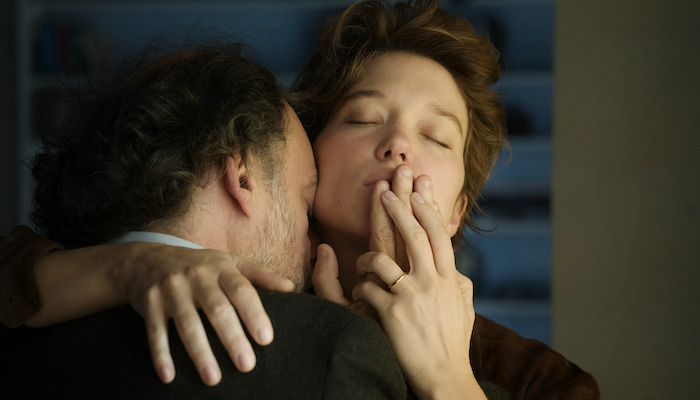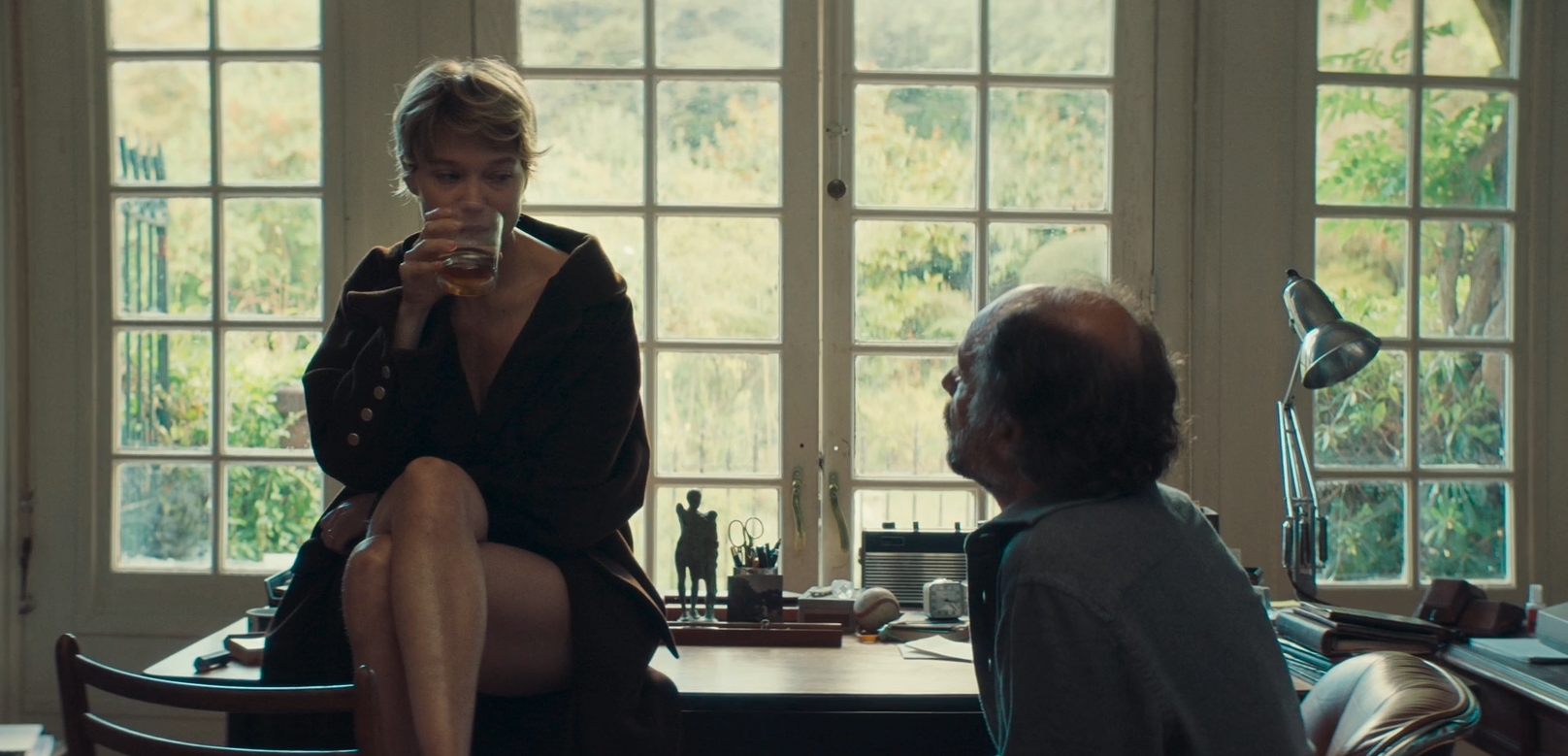Tromperie (2021)


Tromperie (Deception) is a literary and intellectual drama based on Philip Roth’s semi-autobiographical novel. The film unfolds through a series of intimate conversations, blurring the lines between fiction and reality, love and deceit, desire and guilt.
Unlike traditional narrative-driven films, Tromperie is dialogue-heavy and theatrical, resembling a play more than a conventional movie. The focus is on philosophical musings rather than action, making it a film that appeals to those who enjoy introspective, layered storytelling.

The film centers on Philip (Denis Podalydès), an American writer living in London, who has ongoing clandestine meetings with his unnamed mistress (Léa Seydoux), a beautiful but tormented British woman. They spend time in his office, discussing love, fidelity, memory, aging, literature, and exile.
Philip also engages in conversations with other women:
-
His wife, who suspects his infidelity.
-
A former lover, who accuses him of emotional cruelty.
-
An old acquaintance, who reflects on their past relationship.
Through these encounters, the film weaves a portrait of male ego, the complexities of relationships, and the blurred boundaries between truth and fiction.

Tromperie is not a conventional romance—it’s a cerebral, introspective meditation on love, literature, and the nature of truth. If you enjoy films that feel like reading a novel, this one is worth your time.
Do you think Tromperie successfully captures the essence of Roth’s novel, or does it lean too heavily on its intellectualism?










